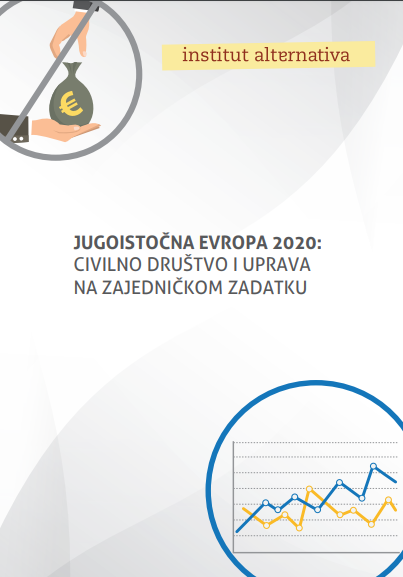South East Europe 2020: Civil Society and State Administration on the Same Mission
States do not own a monopoly over information, therefore the role of civil society in the monitoring of public policies and achievement of strategic goals becomes even more important. Almost as a rule, transition countries lack official statistical data. Moreover, available data are usually incomplete; which makes evidence based policy making even more difficult, and also unreliable when it comes to officially presented data on the public policy implementation. Therefore, civil society should play its role as the corrective mechanism in relation to the relevant institutions at the national and regional level.
The process of implementation of the South East Europe 2020 Strategy, the regional strategy document, which was modeled on the reform agenda of the European Union (EU), Europe 2020, provides a framework for the greater involvement of civil society in the process of directing overall social and economic development of the region as well as institution-building process in countries that are still in the process of consolidating democracy. An area in which civil society organisations can provide special contribution is “Governance for Growth”, all-pervasive strategy pillar covering improvement of public services, fight against corruption and judicial reform. The mere fact that public officials are subjected to ever greater political conditioning by the EU, which can often lead to a risk to their personal careers and point out the corruption within institutions, is reflecting the importance of independent, external role of “watchdog” that civil society can take.
For the purposes of this publication, which aims to provide guidance to civil society organisations to engage in monitoring the “Governance for growth” pillar, monitoring is defined as systematic data collection towards gaining insight of the specific policy at a given time in relation to the targets and results. This definition reflects a paradigm shift when it comes to monitoring policy, i.e. from the former monitoring process, primarily focused on the implementation of certain policies, to the result-oriented monitoring, as an instrument that allows stakeholders and decision makers to monitor progress and impact of specific policies. As such, monitoring is a natural introduction to the evaluation of public policies, and assessment of the policy impact after a certain period of its implementation.
Full publication (in Montenegrin) is available here.
Please see the video animation (in Montenegrin):

